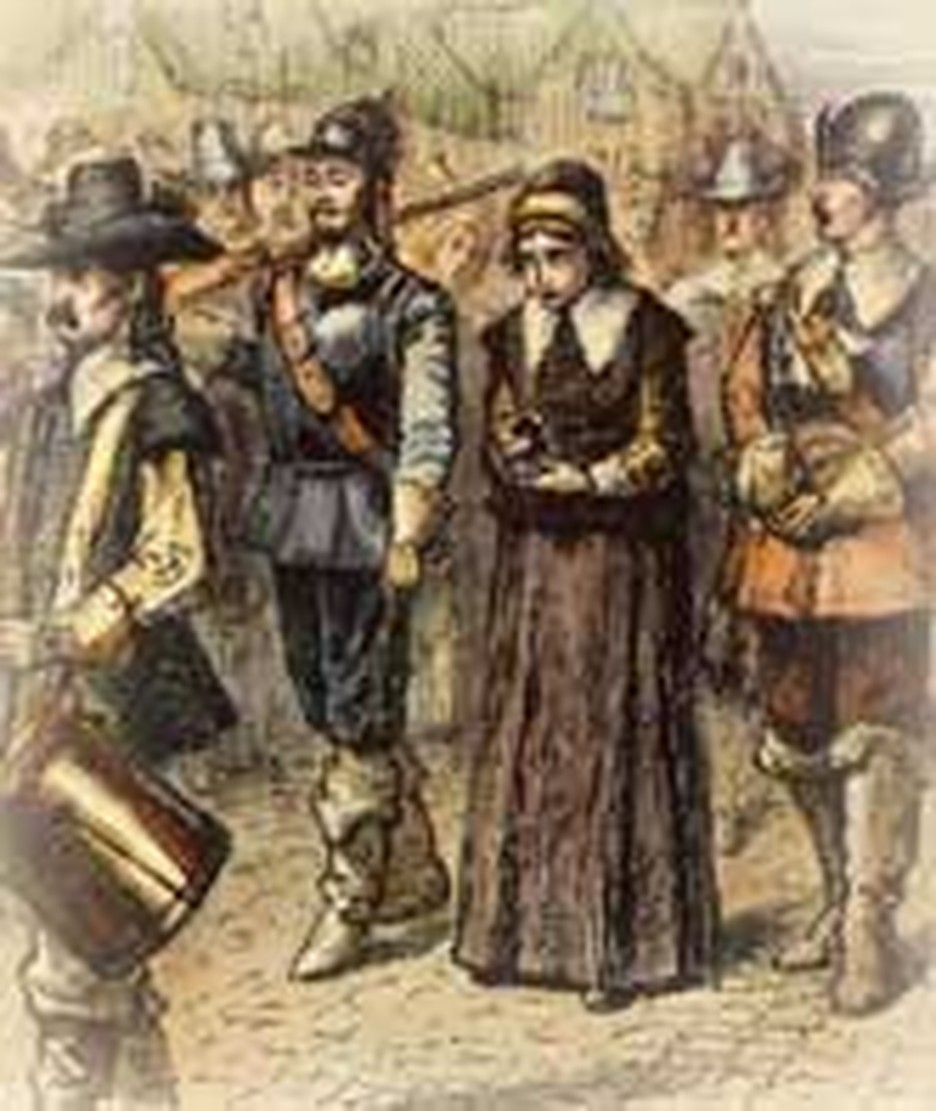
Did the Massachusetts Puritans rely too heavily on works and not enough on the grace of Christ? Some early settlers thought so. Salvation was by grace for those who were filled with the Spirit, taught Anne Hutchinson, and Mary Dyer agreed. To the Puritans this seemed antinomian, that is, opposed to law.
Mary Dyer was a "very proper and fair woman" according to Governor Winthrop. With her husband, William, she came to the New England colony in 1635 and joined a Boston church. At first all went well. But when Anne Hutchinson began to push her views, Mary agreed with them. William also adopted the ideas and was disenfranchised in 1637. When Anne was expelled from the assembly in 1638, Mary Dyer was the only person who would stand with her, accompanying her from the building.
Mary had a stillborn child and the congregation cruelly suggested this was the hand of God punishing her. They started a rumor that it was a monster. The Dyers were expelled from the colony and helped found Providence, Rhode Island.
Mary Dyer traveled to England in 1650. The views of George Fox, the Quaker, appealed to her and seemed the logical extension of what she already believed. She became a Quaker. On her return to Rhode Island she was arrested and jailed in Boston but released on her husband's entreaty. More and more she felt the need to spread the gospel as she saw it.
She made missionary trips into New Haven and Boston. In 1659 she visited Quaker friends who were jailed in Boston. Local authorities warned her to get out of town and not return. Return she did, however, and was condemned to die in September 1659. She was given a reprieve, however, although two Quakers who had traveled with her "to look the bloody law in the face," were executed.
Once more Mary Dyer put her life on the line. For the fourth time she defied the Massachusetts law. She was arrested and condemned to death, all pleas by family proving ineffectual. The authorities would not agree to let her go unless she swore never to return. This she would not do. "...in obedience to the will of the Lord I came, and in His will I abide faithful to the death."
On this date, June 1, 1660, Mary Dyer was hung. To them she was simply a hard-headed heretic. Like many of the early Quakers she was willing to pay the price for her faith. It seems that she even longed for martyrdom.
Mary left behind seven children. Quakers eventually won civil rights in America. Christianity, more than any other single force, has extended the human rights, despite ugly chapters such as this. Mary Dyer, with her gospel of grace was an important player in that battle.
Bibliography:
- "Dyer, Mary." Dictionary of American Biography. New York: Scribner, 1958-1964.
- Morton, Nathaniel. New England's Memorial, 1669. (Includes the account of the hideous monster).
- Selleck, George A. Quakers in Boston, 1656-1964: three centuries of Friends in Boston and Cambridge. Cambridge, Massachusetts: Friends Meeting at Cambridge, 1976.
Last updated April, 2007.


